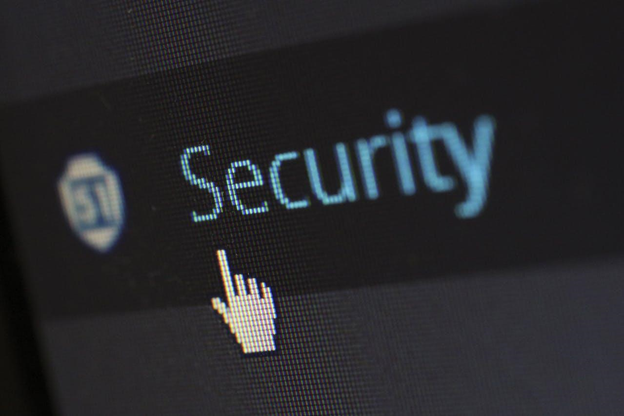Our modern world runs on the internet. We do so much online, including banking, shopping, and keeping in touch with loved ones. Yet the very convenience that makes the web so amazing also opens us up to a different kind of danger: cyberattacks.
The cost is staggering. Businesses lost over $6 trillion globally to cybercrime in 2021 alone, with predictions that it will reach $10.5 trillion by 2025. And that’s not even counting the emotional cost of having your identity stolen or the sheer stress of a digital hijacking. Hackers aren’t going away. But there are steps you can take to outsmart them and regain control of your digital life.
Know the Enemy
Cyberattackers are a diverse bunch. Some are mischievous teens hacking for fun, while others are part of sophisticated criminal organizations. But they all have a few things in common:
- Exploiting Vulnerabilities: Hackers are like burglars looking for an unlocked window. They’re constantly hunting for weak spots in software or human habits.
- Social Engineering: Using trickery, not just technology, to get you to reveal passwords or install malware. Think of those fake “urgent” emails from your bank or a panicked call claiming to be from tech support.
- Malware: Short for “malicious software.” This can be anything from viruses that trash your system to sneaky programs that hide in the background, logging your every move.
Build Your Defenses

Don’t think of cybersecurity as some technical thing only IT geeks need to worry about. Just like brushing our teeth is basic hygiene, a few smart strategies make a massive difference in keeping hackers at bay.
- Passwords are Paramount: Think of them as keys to your digital house. Use long, complex passwords that can’t easily be guessed. Never reuse passwords across different websites. A password manager can help make this easy.
- Updates Matter: Software companies release updates to fix security holes. Turn on those automatic updates, and don’t click “remind me later.”
- Think Before You Click: Hackers know we let our guard down sometimes. Double-check any email that seems too good to be true or sounds urgent, especially those asking for personal information.
- Be Wary of Public Wi-Fi: Avoid logging into your bank account or anything sensitive when using public wi-fi. Hackers love setting up fake hotspots.
Backups: Your Digital Life Preserver
Even the best defenses can sometimes be breached. That’s why having backups of your important files is so critical.
- The 3-2-1 Rule: Keep at least three copies of your data. Store them on at least two storage types (like an external hard drive and a cloud service). At least one copy should be offsite, so a house fire doesn’t wipe everything out.
- Test Your Backups: There’s nothing worse than having a backup that doesn’t work when you need it. Periodically test to ensure you can actually restore your data.
Protect What Matters Most
Some things are simply too precious to risk. Take these extra precautions:
- Two-Factor Authentication (2FA): This adds an extra layer of security, usually a code sent to your phone before anyone can log in. Turn this on for any sensitive accounts that offer it, like your email and bank.
[YouTube Link: What Is Two-Factor Authentication?]
- Financial Monitoring: Set up alerts from your bank and credit card companies for any unusual activity. Consider using a credit monitoring service for extra peace of mind.
- Educate Your Family: If you have kids or older relatives under your care, make sure they understand the basics of online safety, especially responsible social media use.
Beyond the Basics: The Ever-Evolving Threat
You’ve got the fundamentals down. But hackers are constantly finding new ways to attack, making staying ahead of them an ongoing battle. Here’s what to keep an eye on:
- The Internet of Things (IoT): Those smart thermostats, voice assistants, and internet-connected fridges are amazingly convenient. But they also offer new avenues for attack. Make sure they are properly secured, and firmware is updated.
- Email is Still King: Even with social media and messaging apps, email remains the primary way hackers get in. Be extra cautious there.
- Ransomware on the Rise: This type of malware encrypts your files, holding them hostage until you pay up. The best offense is a good defense – prevention is key.
When to Call in the Pros
Sometimes, it’s wise to get outside help. Here are some scenarios to consider:
- You’ve Been Hacked: If you suspect you’ve been a victim of an attack, don’t try to fix it yourself. Contact a cybersecurity professional who can contain the damage and recover your data.
- Sensitive Data: If your business handles medical information, complex financials, or highly sensitive data, invest in a professional security assessment.
- Peace of Mind: If cybersecurity is making you lose sleep, consider a managed security service that will handle the monitoring and proactive defense for you.
A Business Owner?: The Stakes Are Higher
Small and medium-sized businesses are prime targets for cyberattacks, often because they don’t think they have anything worth stealing. But, customer data or the ability to disrupt your operations can be extremely valuable to hackers.
- Employee Training: Your team is your first line of defense. Make cybersecurity awareness training mandatory and regular.
- Limit Access: Only give employees the access they truly need for their job.
- Incident Response Plan: Have a written plan for what to do if a breach occurs. This will minimize the damage and get you back up and running faster.
- Consider a Degree in Cybersecurity: Obtaining an online degree in a field specifically designed to combat cybercrime can give you the in-depth knowledge you need to protect your business. Here are three excellent options:
- Online Masters in Cybersecurity: Provides a comprehensive understanding of cybersecurity principles, threat mitigation, incident response, and more.
- Online Masters in Information Assurance: Focuses on the technical and managerial aspects of protecting sensitive digital information.
- Online Masters in Criminal Justice: While offering a broader view of the criminal justice system, it can include courses on cybercrime that can add valuable expertise to your arsenal.
Conclusion
Cybersecurity isn’t about being afraid of the internet. It’s about being smart and prepared so you can reap the benefits of the digital world while staying safe and in control. These strategies seem basic, but consistently practicing them will dramatically lower your risk. Remember, even the biggest corporations get hacked, but you don’t have to be an easy target.

